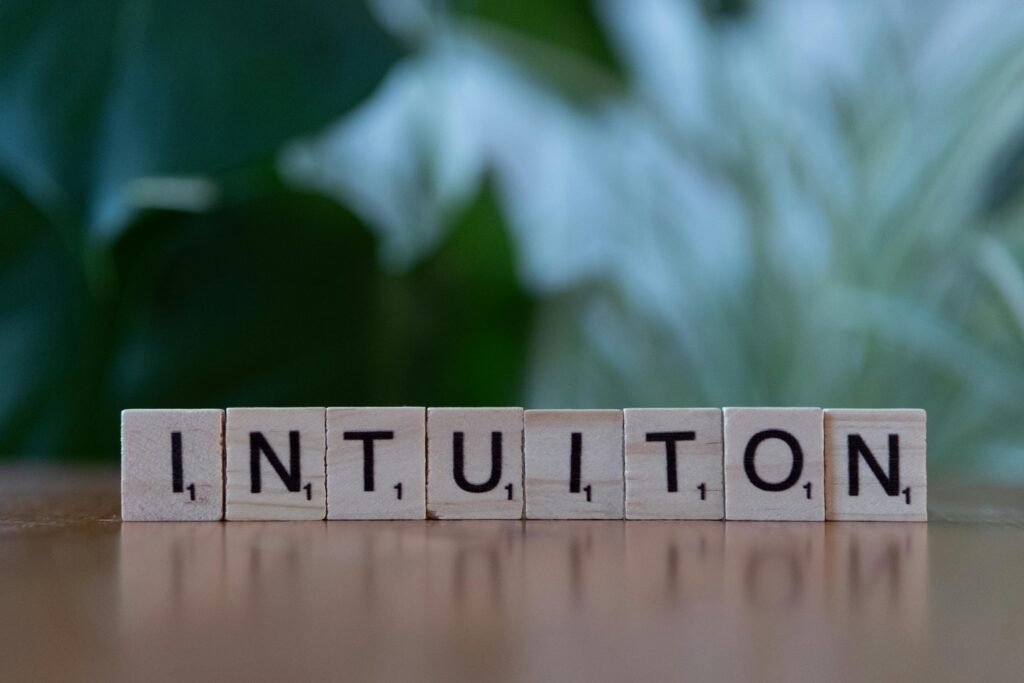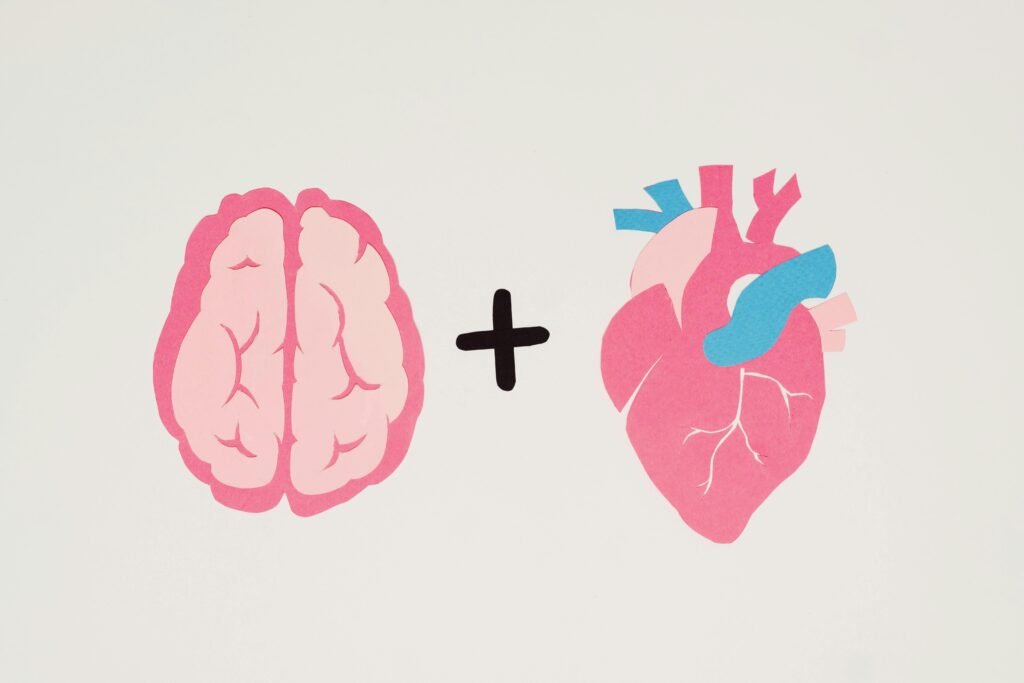
Introduction to Spiritual Intuition
In a world that often prioritizes logic and data-driven decisions, the significance of spiritual intuition can sometimes be overlooked.
This unique form of inner guidance offers an alternative approach to decision making, tapping into our deeper awareness and values.
Spiritual intuition can provide clarity and insight that goes beyond what the analytical mind can comprehend.
By tuning into this inner guidance, we can navigate life’s choices with a sense of purpose and alignment that purely logical decision making may lack.
Think of spiritual intuition as a subtle nudge or a quiet voice that speaks from within, helping us to recognize the best paths to follow.
This form of intuition often draws from a well of subconscious knowledge, past experiences, and emotional cues, making it a comprehensive guide in our everyday lives.
It’s crucial to recognize that everyone possesses this intuitive ability, although it may manifest differently for each person.
For some, it might be a gut feeling, while for others, it could be a sudden clarity or an unexplainable knowing.
By learning to listen to and trust this inner voice, we can make decisions that resonate more deeply with our authentic selves.
Developing spiritual intuition involves practices like mindfulness, meditation, and paying close attention to our bodily sensations.
These techniques help quiet the noise of everyday life, allowing our intuitive insights to surface more clearly.
With time and practice, relying on spiritual intuition can become a natural part of our decision-making toolkit, complementing logical analysis and leading to more holistic choices.
Embracing this inner wisdom can enrich our lives, helping us make decisions that truly reflect our deepest values and desires.
Recognizing Your Inner Voice

Understanding your inner voice starts with distinguishing intuition from instinct.
While instinct is more primal and rooted in survival, intuition draws on past experiences and emotions to provide guidance.
In behavioral economics, researchers like Daniel Kahneman and Amos Tversky have found that intuition often involves mental shortcuts guiding quick decisions based on past experiences and emotions.
These shortcuts can sometimes lead to biases, yet they also hold the potential for deep insights.
You might experience intuition as a gut feeling or a spontaneous thought that seems to come from nowhere, urging you toward a particular decision.
Recognizing your inner voice involves being attuned to these subtle cues.
One effective way to do this is by observing how your body responds in different situations.
Physical sensations such as a sense of calm, tension, or a flutter in your stomach can provide important clues about what your intuition is telling you.
For instance, feeling a sense of peace when contemplating a decision may suggest it aligns with your inner guidance.
Another method to identify your inner voice is through reflection.
Taking moments of quiet contemplation allows you to separate external influences from your genuine feelings.
Journaling can be particularly helpful here; by writing down your thoughts and feelings, you can better understand the patterns and messages your intuition conveys.
Practicing mindfulness also enhances your ability to hear your inner voice.
By focusing on the present moment and observing your thoughts without judgment, you can create a mental space where intuitive insights can emerge more clearly.
This practice helps in differentiating between the noise of everyday life and the subtle whispers of your intuition.
Practicing Mindfulness

Practicing mindfulness is essential for connecting with your inner guidance.
By focusing your attention on the present moment, you can quiet the mental chatter that often drowns out intuitive signals.
One effective technique is focused breathing.
By taking deep, deliberate breaths, you can center yourself and become more attuned to your inner state.
As you breathe, pay attention to the rise and fall of your chest and the sensation of air entering and leaving your nostrils.
This simple practice can ground you and open the door to intuitive insights.
Another way to cultivate mindfulness is through mindful observation.
Engage your senses fully in everyday activities, whether it’s savoring the taste of your food, feeling the texture of your clothing, or listening to the sounds around you.
By immersing yourself in the present moment, you can sharpen your awareness and become more receptive to intuitive cues.
Body scan meditations can also be highly beneficial.
During a body scan, you systematically focus on different parts of your body, noticing any sensations or tension without judgment.
This practice helps you tune into physical signals that might indicate intuitive guidance.
For instance, you might feel a sense of lightness when considering a certain choice, suggesting it aligns with your intuition.
Incorporating short mindfulness breaks into your day can make a significant difference.
Pause for a few moments to take a few conscious breaths or simply observe your surroundings.
These small moments of mindfulness can help you stay connected to your inner guidance throughout the day.
Mindfulness is not just about formal practices; it’s about bringing a sense of presence and awareness to all aspects of your life.
As you become more mindful, you’ll find it easier to recognize and trust the intuitive messages that guide your decisions.
Meditation Techniques for Intuition

Meditation is a powerful tool for nurturing intuition.
Through specific meditation practices aimed at enhancing intuitive thinking, you can tap into your subconscious and uncover valuable insights.
Guided meditations can be especially effective in this process.
These meditations often involve visualizations that help you access deeper layers of your consciousness, revealing intuitive messages that might not be immediately apparent in your daily life.
For example, you might be guided to imagine a situation where you need to make a decision, and then notice the feelings and thoughts that arise naturally.
Another useful technique is silent meditation, where you focus on a single point of awareness, such as your breath or a mantra.
This practice helps to quiet the mind, allowing subtle intuitive insights to come to the forefront.
By observing your thoughts and feelings without judgment, you create a mental environment where intuitive knowledge can surface more easily.
Body-centered meditations, such as focusing on the heart or the gut, can also be beneficial.
These areas are often referred to as centers of intuition, and paying attention to the sensations in these parts of your body during meditation can provide valuable guidance.
For instance, you might feel a sense of warmth or openness when contemplating a particular choice, indicating alignment with your inner guidance.
Incorporating meditation into your daily routine, even for just a few minutes each day, can significantly enhance your intuitive abilities.
Experiment with different meditation techniques to discover what works best for you, and remember that consistency is key.
Over time, you may find that meditation not only enhances your intuition but also brings greater clarity and peace to your overall decision-making process.
Listening to Your Body

Our bodies can be strong indicators of intuitive insights. Emotion and intuition are often physically present in our gut, which is sometimes referred to as our ‘second brain.’
For example, if you’re feeling uneasy about a situation, it might be your body’s way of signaling that something isn’t quite right.
By paying attention to these sensations, you can make more informed choices.
Recognizing how your body reacts to different situations can reveal a lot about your intuitive guidance.
For instance, a sense of tension or discomfort in your stomach might indicate that a particular decision is not in alignment with your inner values.
On the other hand, feeling relaxed or energized could suggest that you are on the right path.
Regularly tuning into your physical sensations can help you better understand your intuitive signals.
Practices such as body scan meditation, where you focus on different parts of your body and notice any sensations, can heighten this awareness.
Pay attention to any areas of tension, warmth, or lightness, as these can be clues to what your intuition is telling you.
Engaging in activities that connect you with your body, such as yoga or tai chi, can also enhance your ability to listen to your bodily cues.
These practices encourage mindfulness and body awareness, making it easier to detect and interpret intuitive messages.
By cultivating a habit of listening to your body, you can better navigate daily decisions and align them with your deeper truths.
Journaling for Clarity

Journaling is a powerful practice that can help you tap into your intuitive insights and gain clarity on your decisions.
When you write down your thoughts and feelings, you create a tangible record of your inner experiences, making it easier to recognize patterns and messages from your intuition.
Start by setting aside a few minutes each day to write freely about whatever comes to mind.
Don’t worry about grammar or structure; the goal is to let your thoughts flow naturally.
You might begin by describing your day, noting any strong emotions or gut feelings you experienced.
Over time, you may notice recurring themes or insights that can guide your decision-making process.
To deepen your intuitive journaling practice, consider asking yourself specific questions before you start writing.
For example, you might ask, “What is my intuition telling me about this situation?” or “What feelings do I have about this decision?”
Write down whatever comes to mind, even if it seems unrelated or trivial.
Often, the act of writing can help you uncover hidden insights and make sense of your intuitive nudges.
Another technique is to use prompts to explore different aspects of your intuition.
Questions like “When have I felt this way before?” or “What past experiences might be influencing my feelings now?” can help you connect the dots between your intuition and your life experiences.
By making journaling a regular habit, you create a dedicated space for self-reflection and intuitive exploration.
This practice not only enhances your ability to listen to your inner voice but also builds a deeper connection to your authentic self, aiding you in making more informed and aligned decisions.
Trusting Your Intuition in Daily Life

Learning to trust your intuition in daily life can lead to decisions that resonate more deeply with your authentic self.
You might feel an inexplicable urge to take a different route to work, only to discover later that you avoided a major traffic jam.
Or perhaps you choose to decline a social invitation without knowing why, only to find that you avoided an awkward or unpleasant encounter.
These moments, though seemingly small, illustrate the power of intuition in guiding us toward choices that align with our deeper needs and values.
It’s essential to recognize that intuition often defies conventional logic.
For instance, you might feel drawn to a new job that offers less pay but provides more personal fulfillment and aligns better with your long-term goals.
Or you may have a strong feeling about moving to a new city, even if it means leaving behind a comfortable life.
These decisions, driven by intuition, can lead to personal growth and greater satisfaction.
To strengthen your trust in intuition, start with small decisions.
Pay attention to how you feel when you follow an intuitive nudge versus when you ignore it.
Over time, you’ll likely notice patterns that reinforce the reliability of your inner guidance.
Remember, while it’s natural to feel uncertainty, trusting your intuition can lead to more authentic and rewarding experiences.
Balancing Intuition with Logic

Integrating intuition with logical reasoning can create a robust decision-making framework.
While intuition provides immediate, often emotion-based insights, logic offers structured, analytical perspectives.
Scientists suggest that intuition works across multiple regions of the brain, particularly the right hemisphere, the hippocampus, and even the gut.
This indicates that while intuition provides valuable insights, logic and reason play important roles as well.
When facing a decision, start by listening to your intuitive feelings and then assess them through a logical lens.
For example, you might feel a strong intuitive pull toward a particular career change.
Use logic to evaluate the potential benefits and drawbacks of this move, such as financial implications and long-term career growth.
This dual approach ensures that your decision is well-rounded, balancing emotional and rational considerations.
In practice, you could start by jotting down your intuitive impressions about a decision, then follow up with a list of logical pros and cons.
This method helps in validating intuitive hunches with logical evidence, creating a balanced perspective.
Additionally, consulting with others can provide an external logical viewpoint to complement your inner guidance.
This harmonized approach allows you to make choices that are not only heartfelt but also grounded in practical reality.
By learning to balance intuition with logic, you can make more informed and confident decisions.
The Role of Environment and Lifestyle

Your environment and lifestyle choices significantly impact your intuitive abilities.
A cluttered, stressful environment may cloud your intuition, while a calm and supportive setting enhances it.
To cultivate an environment conducive to intuitive growth, consider incorporating natural elements like plants and fresh air, as well as calming colors and personal items that reflect your values and aspirations.
Keeping your living and workspace organized can also create mental clarity, allowing intuitive insights to flow more freely.
Regularly decluttering and maintaining a tidy space can make a notable difference in how connected you feel to your inner guidance.
In addition to your physical environment, your lifestyle choices play a critical role.
Engaging in regular physical activity, such as yoga, walking, or swimming, helps maintain a balanced and focused mind.
Physical movement not only benefits your overall health but also aids in reducing stress, making it easier to tune into your intuitive signals.
A balanced diet rich in whole foods, fruits, and vegetables can further support mental clarity and emotional well-being.
Staying hydrated and avoiding excessive caffeine and sugar can prevent mood swings and mental fog, enhancing your intuitive capabilities.
Finally, incorporating regular relaxation practices such as meditation, mindfulness, or deep breathing exercises can help you stay grounded and more attuned to your inner voice.
Building Confidence in Your Intuitive Abilities

Building confidence in your intuitive abilities involves practice and trust.
Start by making minor choices based on intuition, such as selecting what to wear or which route to take to work.
Reflect on the outcomes to see how your intuition served you.
This process can strengthen your trust in your inner guidance.
Success stories abound of individuals who rely on intuition, whether in creative endeavors, business decisions, or personal relationships.
Jose Silva discovered the possibility of training our minds to function at the alpha level, associated with enhanced intuition and even ESP, demonstrating the potential of intuitive development as more than just a mystical concept.
Additionally, maintaining a journal where you record intuitive feelings and the results of acting on them can provide valuable insights and reinforce your confidence.
Over time, as you observe positive outcomes from following your intuition, your trust in this inner wisdom will grow.
